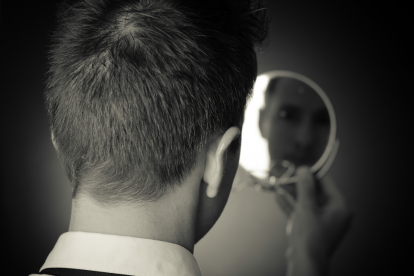The Tortured Genius: Don’t Let Glamorization Keep You From Bipolar Disorder Treatment

The relationship between genius and mental illness has long been the subject of romantic lore. Even Aristotle said, “There is no great genius without a mixture of madness.” Bipolar disorder in particular seems to be connected with intellectual and creative highs in the popular imagination, and the Internet is littered with pages listing the names of famous historical figures, from Beethoven to Plath to Churchill, who suffered from the illness. Is this association justified? A new study suggests that there is some truth to it, but critics warn that glamorization minimizes the need for bipolar disorder treatment.
The Link Between Mania and Intelligence
Researchers at the University of Glasgow recently sought to investigate the possible relationship between intelligence and bipolar disorder using a group of 1,881 children who underwent intelligence tests at the age of 8. At the ages of 22 or 23, these same subjects again met with researchers and were assessed for mania, the defining feature of bipolar I disorder. The results showed a clear relationship between extremes in mania and intelligence: “Individuals who scored in the top 10% of manic features had a childhood IQ almost 10 points higher than those who scored in the lowest 10%. This correlation appeared strongest for those with high verbal IQ.” Professor Daniel Smith, lead researcher on the study, says the link between high intelligence and bipolar disorder may explain why bipolar disorder may have persisted over generations:
There is something about the genetics underlying the disorder that are advantageous. One possibility is that serious disorders of mood–such as bipolar disorder–are the price that human beings have had to pay for more adaptive traits such as intelligence, creativity and verbal proficiency.
The Glasgow study is not the first time researchers have made the connection between high intelligence and bipolar disorder. A study published in the British Journal of Psychiatry in 2010 compared the final exam grades of over 700,000 15-16 year old Swedish students in 1988-1997 with bipolar disorder-induced hospital admissions. Students who had excellent exams were four times more likely to be hospitalized for bipolar disorder by the age of 31. Top marks in humanities, particularly language arts and music, were especially strongly correlated with bipolar disorder, while those with excellent science marks were less likely to develop the illness. As Jeremy Laurance of The Independent writes:
[The results] suggest that mania may improve intellectual and academic performance, accounting for the link with “genius”. People with mild mania are often witty and inventive, appearing to have “enhanced access to vocabulary, memory and other cognitive resources”. They tend to have exaggerated emotional responses which may “facilitate their talent in art, literature or music”. In a manic state individuals have ‘extraordinary levels of stamina and a tireless capacity for sustained concentration’.
The Other Side of the Coin
However, the Swedish study also showed something else: academic excellence was not the only predictor of bipolar disorder. Students with poor academic performance were also more likely to develop bipolar disorder:
The researchers suggest there may be two distinct groups of people with the condition–high achievers, in whom mania raises their game–and low achievers, especially those with low scores in sport and handicrafts indicating poor motor skills, who may have “subtle neurodevelopmental abnormalities.”
In other words, the relationship between bipolar disorder and intellect is not as straightforward as the headlines suggest; in some people, the illness is associated with difficulties that prevent them from reaching high levels of achievement and may severely impact functioning.
The Danger of Glamorization
Indeed, the truth is that bipolar disorder affects a wide range of people of all intellectual and creative abilities. As Hannah Jane Parkinson, a columnist for The Guardian, points out, while there does indeed appear to be a link between bipolar disorder and intelligence amongst some people, there is a real danger in glamorizing the illness that threatens to render invisible the suffering of many living with the disorder:
[T]he concept itself isn’t a problem; rather, it’s the danger inherent in the tortured-genius trope that I object to. What about those with mental illness who work in retail, or are civil servants, or who pull pints? Do these people not get a look-in? How many albums does a person need to make, how many prizes need to be won before mental health issues become acceptable?
While casting people with bipolar disorder as tortured geniuses may serve to combat a certain type of stigma, for most people bipolar disorder does not result in extraordinary artistic creations or adding to the Western canon. For most people, bipolar disorder is a disruptive and painful medical condition that damages, rather than enhances, your life. Glamorization ignores the need for effective, compassionate bipolar disorder treatment to help you regain emotional stability and relieve you from suffering. You deserve to live the most fulfilling life possible, have the support you need to create psychological harmony, and uncover your authentic self, free from the grip of bipolar disorder to maximize your true potential–whatever that may be. After all, as Parkinson points out, Van Gogh himself wrote, “If I could have worked without this accursed disease, what things I might have done.”
Bridges to Recovery offers innovative treatment for people living with mental health disorders in a relaxing, peaceful residential environment. Contact us to learn more about how our program can help you or your loved one start on the path to recovery.






